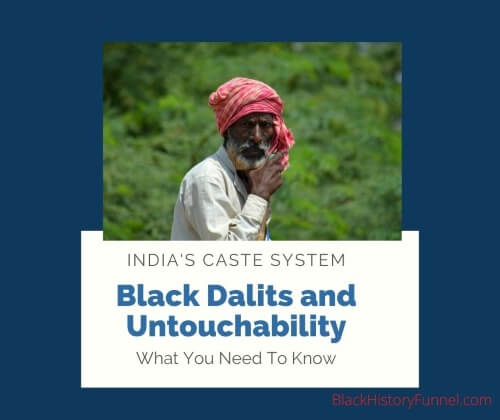Dark-skinned individuals in India’s Dalit community face a heavy label that influences their entire existence. In India, there is a term called ‘untouchability,’ and it’s not about dirt on your hands but the stain of societal prejudice.
Labeled ‘untouchable’ means you are seen as someone so different, so inferior, that people avoid you as if you carry a contagious disease. Now, think about it: How do you think being treated this way would affect a person’s life? What unfortunate circumstances might they face, and how would it feel to be labeled as ‘untouchable’?
Unearthing Deep Roots: Ethiopian Heritage of Dalits
Dalits, tracing their ancestry back 50,000 years to Ethiopia, are the original inhabitants of India. Despite this, over 200 million of them find themselves labeled as untouchables, marginalized within the vast tapestry of India’s 1.3 billion people.
Caste System: A Pyramid of Discrimination
India’s caste system is a hierarchical pyramid, with specific roles for Brahmins, Kshatriyas, Vaishyas, and Shudras. However, Dalits are condemned to the filthiest jobs. Their existence places them outside the social class of the pyramid. They are oppressed and stripped of their dignity.
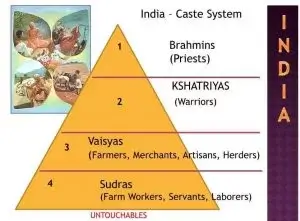
Untouchability: A Life Marred by Stigma
For Black Dalits, the term ‘Dalit’ means ‘crushed’ or ‘broken.’ Hindu teachings propagate the idea that they are reincarnated as a black person as punishment for sins committed in a past life. Therefore, their daily lives are marked by contamination, forced occupations, and untouchability that perpetuate their dehumanization.
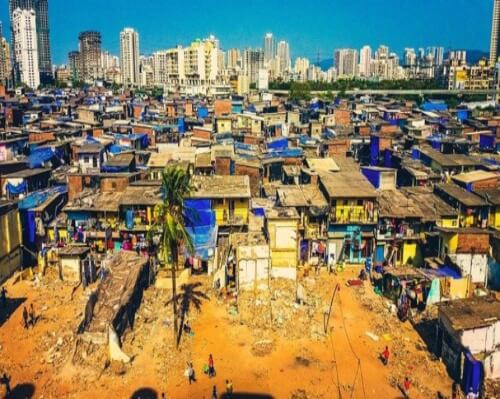
Struggling in Shadows: Daily Tribulations of Black Dalits
Many Dalits are restricted to jobs like cleaning human waste, getting rid of dead animals, and getting bodies ready for burial. Even though these jobs are seen as making the spirit impure, society still makes them do it. People avoid physical contact with them and will not drink from the same water sources.
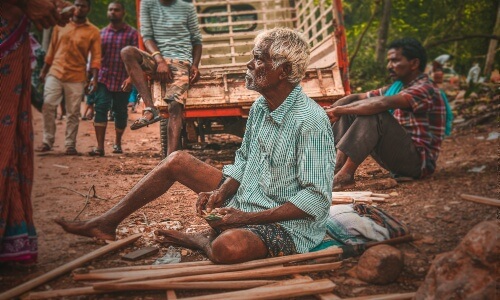
A Historical Visit: Dr. Martin Luther King Jr.’s Encounter
In 1959, living on the outskirts of cities and segregated in slums, the Black Dalits welcomed Dr. Martin Luther King Jr. and his wife to their community. Dr. King acknowledged the striking similarities between the injustices faced by Black Americans and those endured by the Dalit community of India.
Although the caste system of discrimination was abolished ten years before Dr. King’s visit, not much had changed. Dr. King understood the same injustices and inequalities faced by Black Americans did not differ from the hardships faced by Black families living in India.
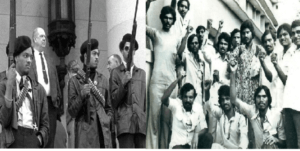
Dalit Panthers of India Fight Against Untouchability
Formed in October 1966, America’s Black Panther Party achieved worldwide publicity. Educated youth from poverty-stricken Mumbai took notice. The Black Panther’s leadership, militancy, and united effort to push for equality impressed the Dalit community.
In 1972, fighting against the continued practices of the caste system, India’s Dalits formed their own Panther Party Movement. They called themselves the Dalit Panthers. They reached out to other Civil Rights groups around the world and gained support and broad publicity in their fight to break the chains of oppression.
Discover More:
Be Awesome! Submit Your Reaction or Comment Below
+1
+1
+1
+1
0 Comments

